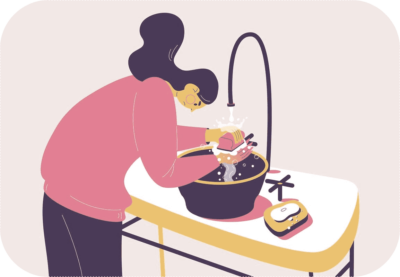OCD is characterized by the presence of obsessions and/or compulsions.
Obsessions are recurring and persistent, intrusive and unwanted thoughts, impulses or images, while compulsions are repetitive behaviors (washing hands, crossing oneself, ordering…) or mental acts (praying, repeating words silently, counting…) that the individual feels compelled to perform in response to an obsession, or according to rules that must be rigidly applied.
Compulsions are intended to reduce or prevent the onset of anxiety or stress, or try to avoid a feared situation, such as becoming infected with bacteria.
However, these compulsions are not realistically connected to what they are trying to avoid, or are clearly excessive, such as washing hands 30 times a day to avoid contamination.
All this translates into a great loss of time on a daily basis, as well as a high level of anguish and suffering in the person who suffers from it, significantly affecting different areas of their life: work, social, etc.
Without treatment, it is usually a chronic disorder, with periods of worsening and improvement, more or less disabling depending on its severity.
Often, the course is complicated by the concurrence of other disorders (depression, anxiety, tics, etc).

With proper approach and treatment, recovery rates are high.
